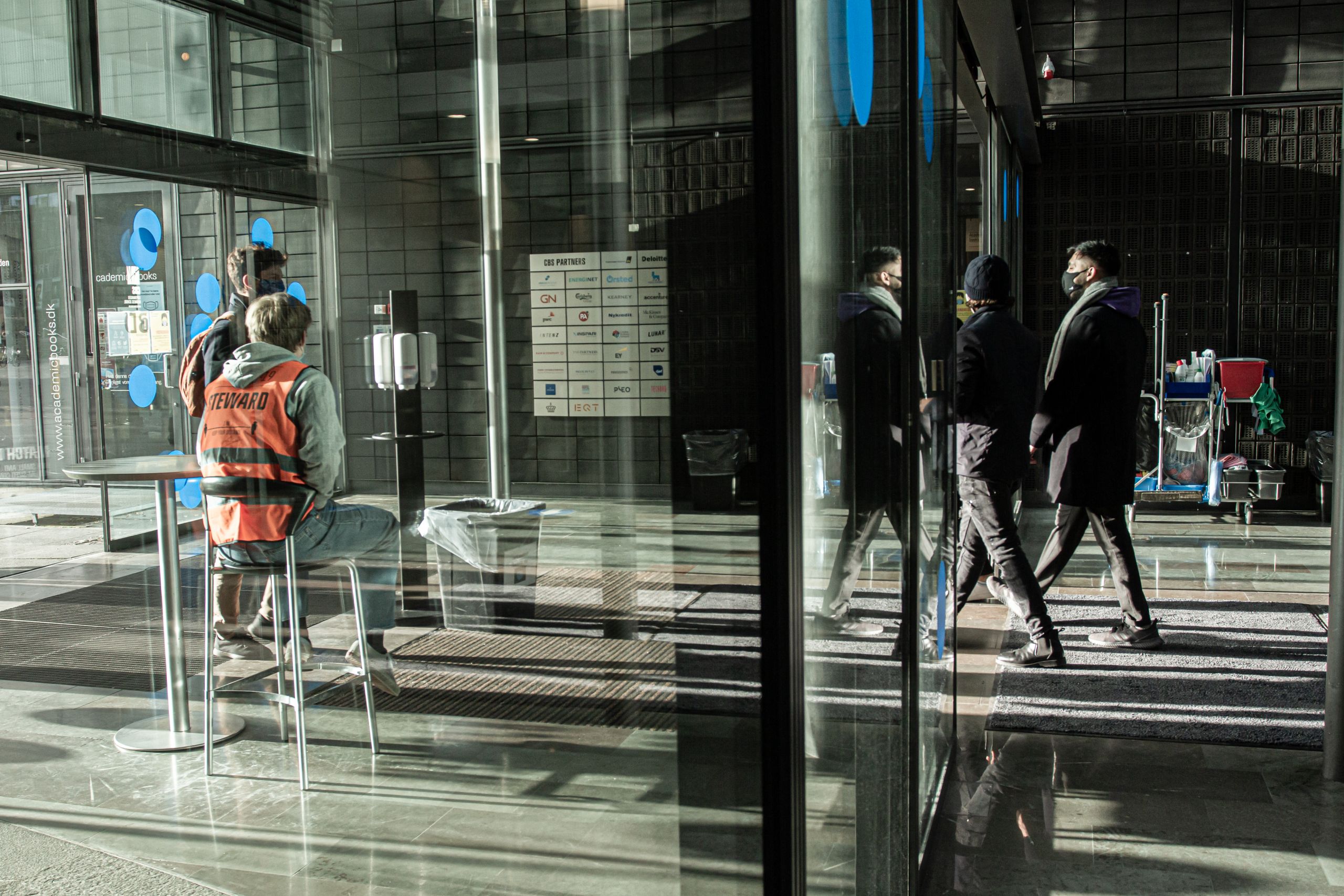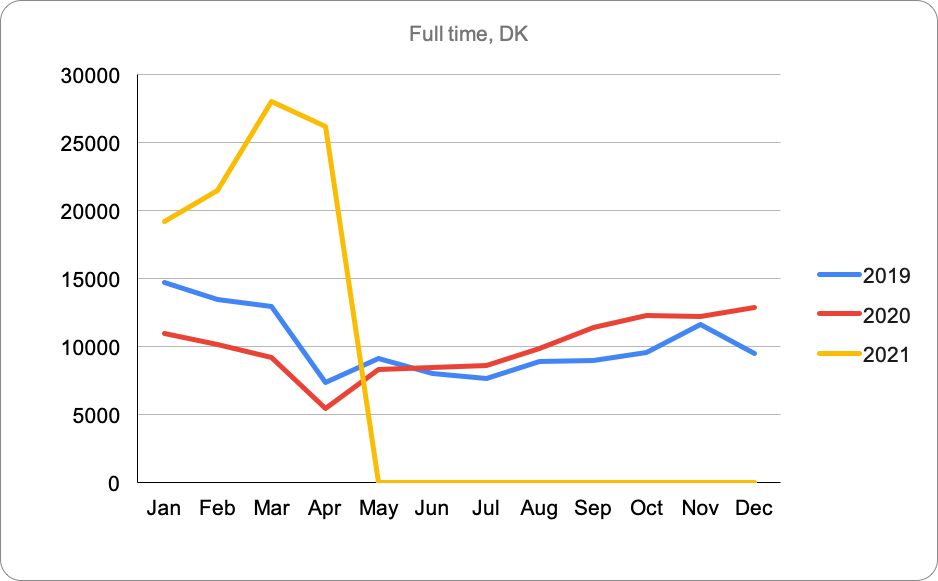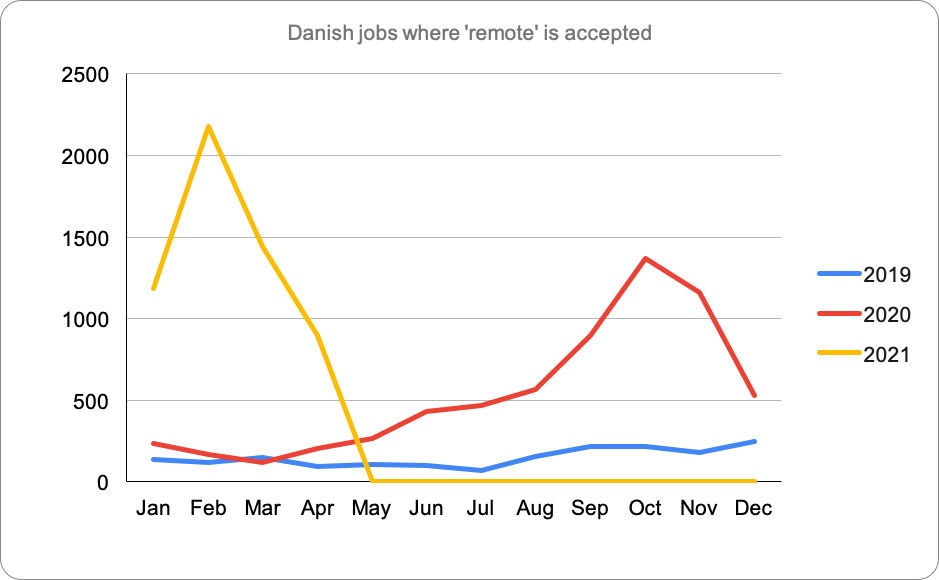New graduates enter a job market in wild growth despite coronavirus

(Photo: Anna Holte)
The number of full-time jobs, student jobs and internships far exceeds figures from previous years, according to Graduateland. “Students no longer call me telling me how awful everything is. Instead, they are calling for advice about job interviews,” says CBS Career Counselor.
Although this spring and last spring are somewhat similar – both significantly affected by corona – the job statistics are miles apart.
According to figures from the job search portal Graduateland, the first four months of 2021 stand out due to the 127% increase in the number of full-time positions posted, compared to the same period in 2020.
“Generally speaking, 2020 wasn’t a great year and when talking about the number of positions, events, and student jobs, it wasn’t great either. But 2021 on the other hand, is looking really good so far. We are seeing a positive trend in all types of positions, but the most interesting is that we have more full-time positions in 2021 than both 2020 and 2019,” says Mikkel Thorup, Senior Partnership Manager at Graduateland.
According to Mikkel Thorup, there are several explanations for the hefty increase.
One of them is digitalization. During corona, everyone has become acquainted with hosting and participating in online meetings. This includes the universities and Graduateland, which have been hosting a lot of online career events.
“We have gained more users on our platforms, students, but also companies that are posting jobs and engaging with the students, via job posts and events,” says Mikkel Thorup.

Figures from Graduateland’s platform show a heavy increase in the number of full-time positions posted compared to 2020 and 2019. The reason for the decrease is that there’s no more data available. (Illustration: Graduateland)
Frank Nordahl, Career Counsellor and Coach at CBS, remembers that the job market was at a stand-still far into the autumn last year, and was clearly affected by uncertainty, which made companies hesitant to post positions. That has changed in 2021.
“After Christmas, most sectors were up and running. Of course, you have some sectors that are still heavily affected, like tourism and service management. But the companies and the students are showing interest, and students are no longer calling me telling me how awful everything is. Instead, they are calling for advice about job interviews,” he says.
Digitalization and remote work
Mette Schroll Bennekou is Relations Manager at CBS, and through her position she is often in contact with CBS’ various partners, and from what she hears, there is good news for new graduates.
“One partner told me that they have a major recruiting need, and have many vacant positions. And she told me this is partly because the ones who already in jobs are less mobile. Because of corona, they are sticking with the jobs they have, rather than looking for something new, and this can benefit graduates with less work experience. Now, they have a better chance of landing a position they may not be fully qualified for,” she says.
Not only has the pandemic taught us to be online, but it has also pushed digital innovation and digitalization in general, and having a digital profile is a big plus, says Mette Schroll Bennekou.
“Another partner told me that they are certainly hiring graduates, and especially ones with specialized profiles within the fields of technology and digitalization, which makes a great deal of sense, since a lot of our interaction has transferred to digital platforms,” she says.
And digitalization also shows in the figures from Graduateland.
Mikkel Thorup explains that the number of remote jobs has gone through the roof. Compared to 2019, the number of jobs where ‘remote’ was part of the job advertisement has increased by 1,095%.

(Illustration: Graduateland)
“This tells you a lot about the job market at the moment. You can meet your employer in a digital space across Denmark or Europe and work from home. So naturally, this opens up for new job opportunities, but, of course, competition increases when more people can apply, as they are not required to show up physically,” he says.
Seize opportunities
A report from The Economic Council of the Labor Movement in Denmark released in May 2021 shows that 23.6% of new graduates in the first quarter of 2020 were unemployed three months later. In the first quarter of 2019, the figure for this group was 16.7%.
Although the statistics for the first quarter of 2021 have yet to be published, Mette Schroll Bennekou is optimistic.
“Yes, landing your first job is hard work, but the business sector and the organizations are hungry to meet students and there are positions to apply for,” she says.
Frank Nordahl also encourages students and graduates to reach out and make use of CBS’ career-related offers.
“In 2020, a lot could be blamed on corona, but I still see applications with the same types of mistakes as before corona. And if those mistakes are corrected, the difference can sometimes prove to be what it takes to land a job interview,” says Frank Nordahl.





































































































































Comments